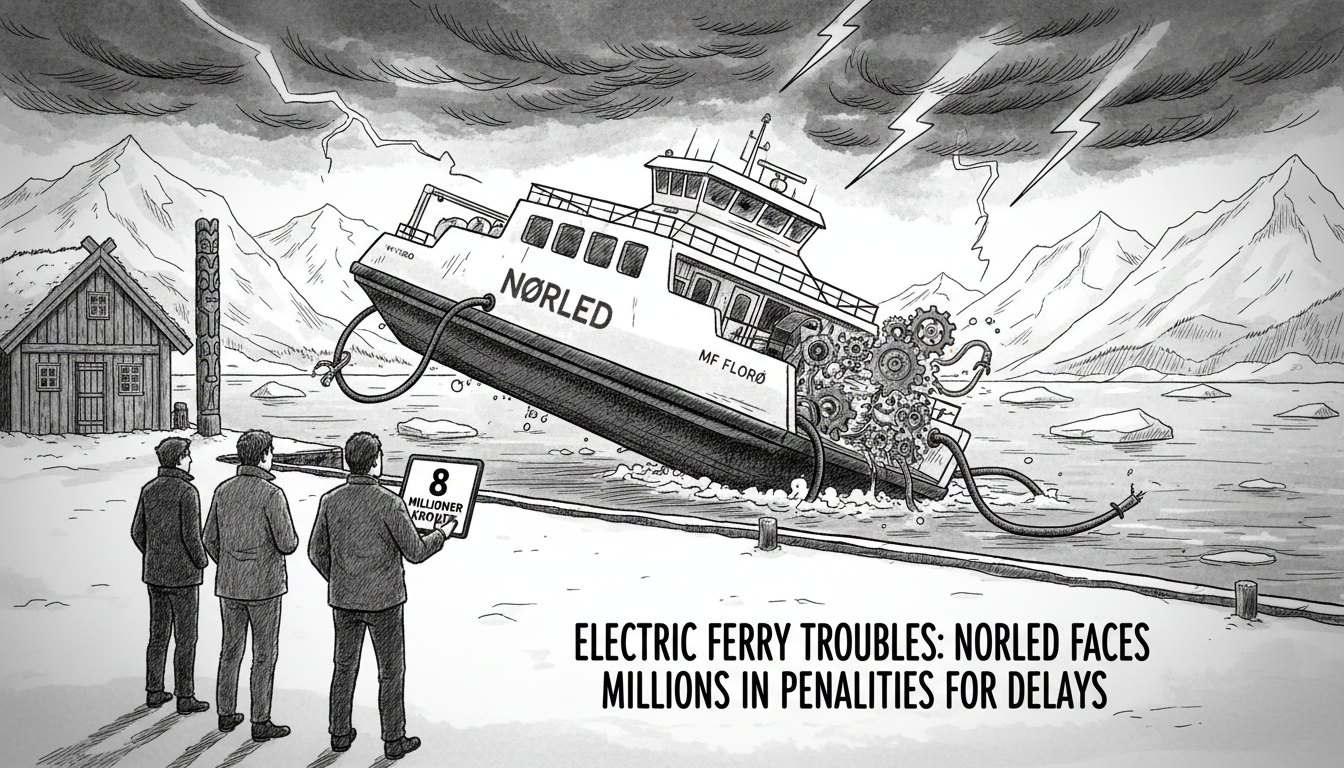Silent electric ferries glide between islands near Florø in western Norway. The green transition on Norwegian waters faces operational challenges. Transport company Norled operates these routes but struggles with schedule reliability. Local authorities impose daily penalties when services fall short.
Vestland County Council charges Norled 80,000 kroner for each day of service failures. Since summer, the company accumulated penalties across 100 days. The total reached 8 million kroner. Officials say Norled cannot maintain promised timetables.
The company disputes these penalties. Norled returns the invoices unpaid. County officials maintain the daily fines continue for each service disruption.
Norway pioneered electric ferry technology. The world's first electric car ferry launched on Sognefjord ten years ago. Today, over 40% of Norwegian ferry routes use electric vessels. Fast passenger ferries present greater challenges than car ferries.
Electric express boats face unique operational hurdles. These vessels travel longer distances at higher speeds than traditional ferries. They consume substantial energy but have limited charging opportunities. This creates complex logistical problems.
Professor Gisle Solvoll, a transport economist, calls the technology premature. He acknowledges the environmental benefits but recognizes passenger inconveniences.
Terje Svardahl depends on ferry commuting. He experiences regular service disruptions. One canceled departure creates major daily complications, he explains.
County officials identify speed as the core problem. Press contact Øyvind Strømmen says delays stem from insufficient velocity. Norled disputes responsibility for underlying speed issues.
The company avoids specifying who bears responsibility. Communications chief Cathrine Gjeldsen calls the penalty decision unfortunate. She notes ongoing dialogue with transport authorities about contracts and payments.
Express boats require heavy, large-capacity batteries. This technology remains challenging despite recent progress. About twenty electric express boats entered service in recent years.
Norled faces financial strain after heavy technology investments. The company reported over 800 million kroner in losses last year. Norled now reduces staffing levels. CEO Marianne Ånestad calls this economically necessary.
Similar problems occur elsewhere in Norway. Northern Norway recorded over 200 canceled departures with modern hybrid vessels this year.
Planned hybrid express boat acquisitions faced cancellation. Boat builder Brødrene Aa went bankrupt this spring after contract termination.
Environmental progress continues despite operational challenges. The Norwegian Climate Foundation reports ferry emissions halved in ten years. National and county authorities mandate climate-friendly vessels.
Government support appears uncertain. A proposal requiring zero emissions for express boats was postponed indefinitely last year. Few new tenders include zero-emission requirements without government funding.
Professor Solvoll suggests successful transition requires state assumption of financial risk. Battery technology must advance significantly, he emphasizes. Express boats demand substantial energy resources.
The green shipping transition shows both environmental promise and operational growing pains. Norway's coastal communities balance ecological goals with transportation reliability.

